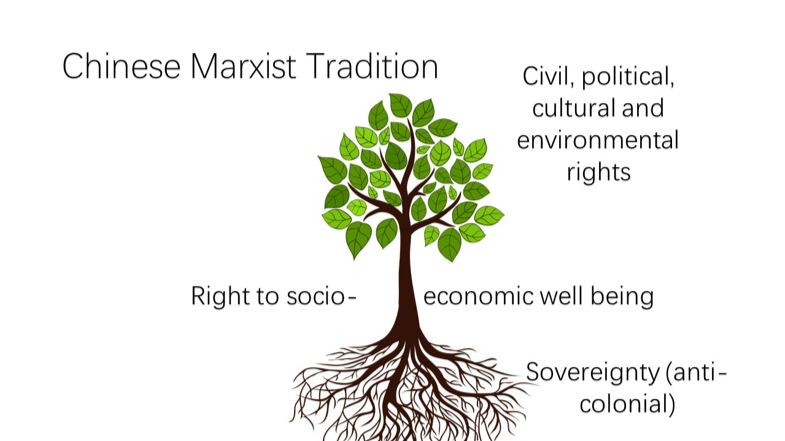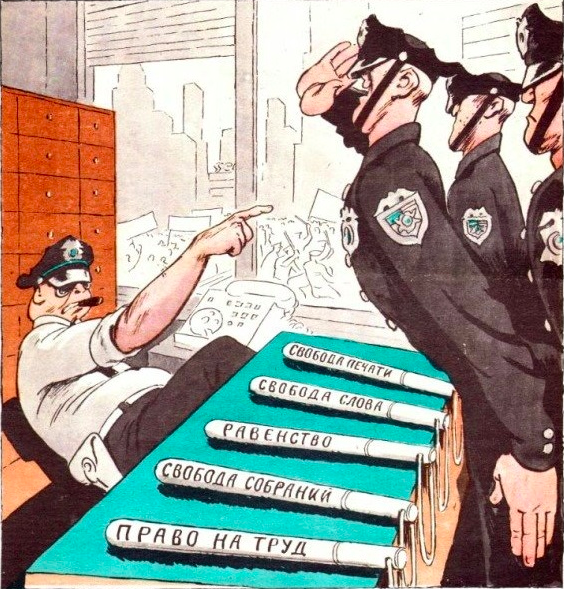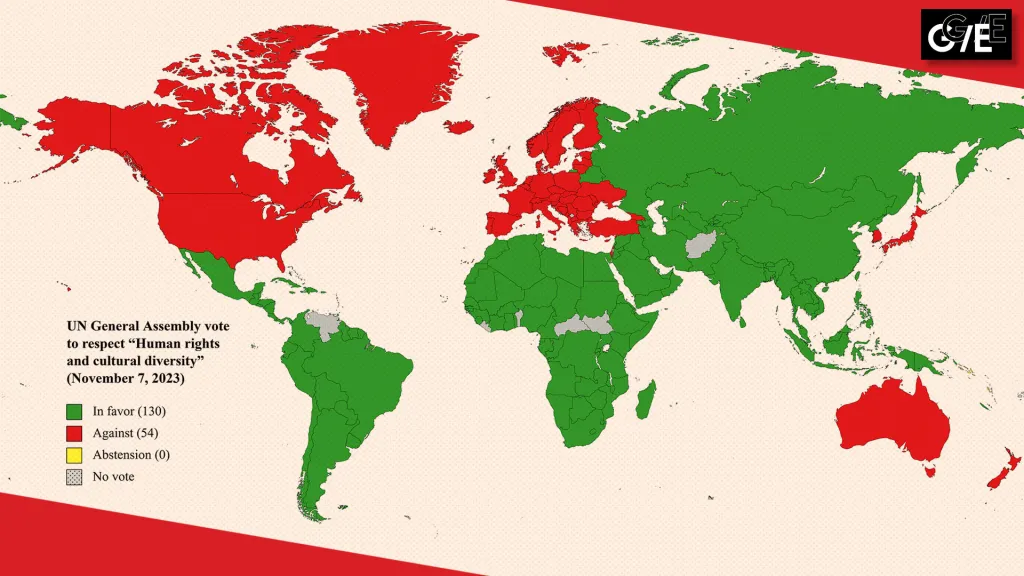(Image) Tag: Visual edit |
(UN) Tag: Visual edit |
||
| Line 2: | Line 2: | ||
[[File:Soviet poster about US police.png|thumb|[[Union of Soviet Socialist Republics (1922–1991)|Soviet]] poster depicting [[United States of America|US]] [[police]] with their batons labelled, "freedom of the press," "freedom of speech," "equality," "freedom of assembly," and "right to work"]] | [[File:Soviet poster about US police.png|thumb|[[Union of Soviet Socialist Republics (1922–1991)|Soviet]] poster depicting [[United States of America|US]] [[police]] with their batons labelled, "freedom of the press," "freedom of speech," "equality," "freedom of assembly," and "right to work"]] | ||
'''Human rights''' are rights that are considered to be inalienable and universal to all humans, to be protected by all levels of government. These rights change throughout the ages based on specific [[Materialism|material]] conditions and social realities that exist in specific societies. | '''Human rights''' are rights that are considered to be inalienable and universal to all humans, to be protected by all levels of government. These rights change throughout the ages based on specific [[Materialism|material]] conditions and social realities that exist in specific societies. | ||
== United Nations == | |||
[[File:A-RES-78-201.png|thumb|Votes in favor (green) and against (red) a UN resolution supporting human rights and cultural diversity]] | |||
In 2023, the [[United Nations]] General Assembly passed a resolution supporting human rights and cultural diversity by a vote of 130 to 54 with no abstentions. All [[Imperial core|Western countries]] voted against the resolution.<ref>{{Citation|author=United Nations General Assembly|year=2023|title=Human rights and cultural diversity|title-url=https://digitallibrary.un.org/record/4030700?ln=en}}</ref> | |||
== References == | |||
Latest revision as of 13:03, 28 April 2024


Human rights are rights that are considered to be inalienable and universal to all humans, to be protected by all levels of government. These rights change throughout the ages based on specific material conditions and social realities that exist in specific societies.
United Nations

In 2023, the United Nations General Assembly passed a resolution supporting human rights and cultural diversity by a vote of 130 to 54 with no abstentions. All Western countries voted against the resolution.[1]
References
- ↑ United Nations General Assembly (2023). Human rights and cultural diversity.